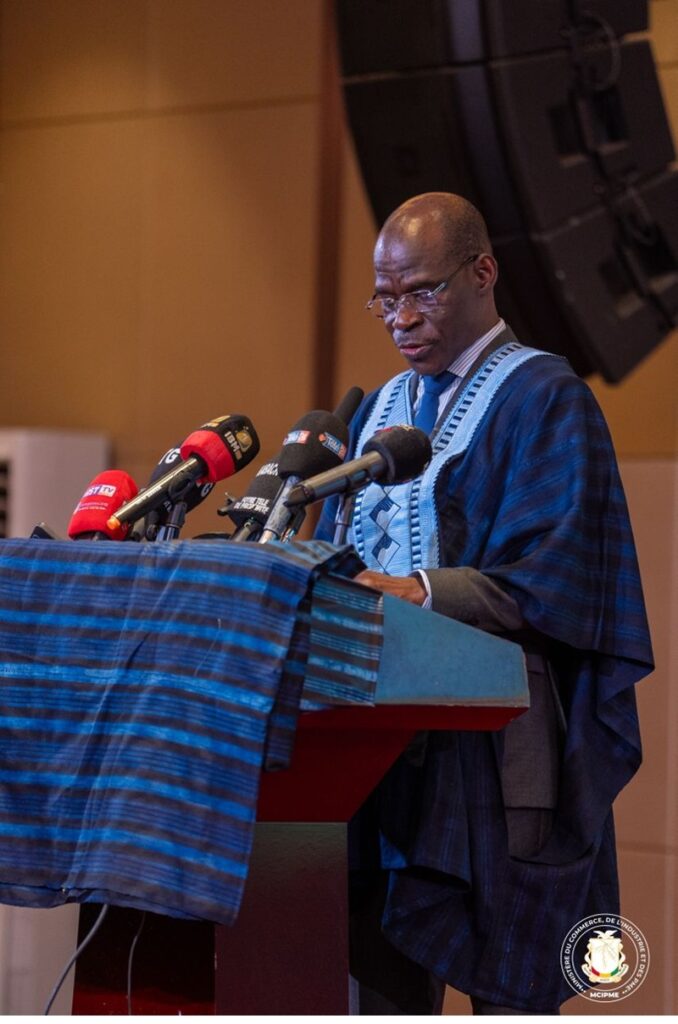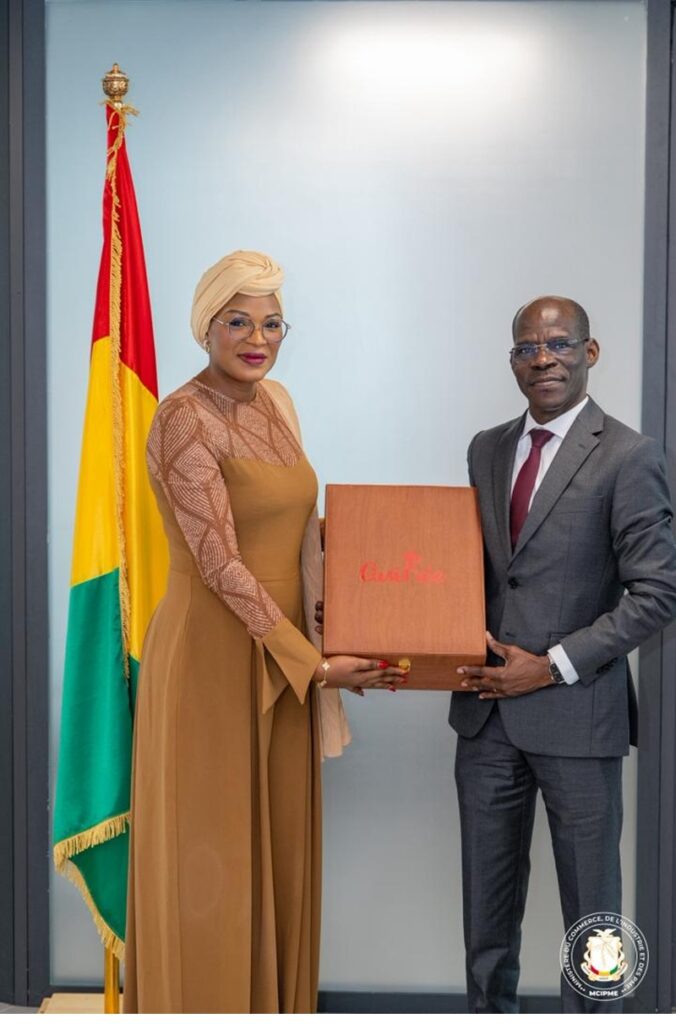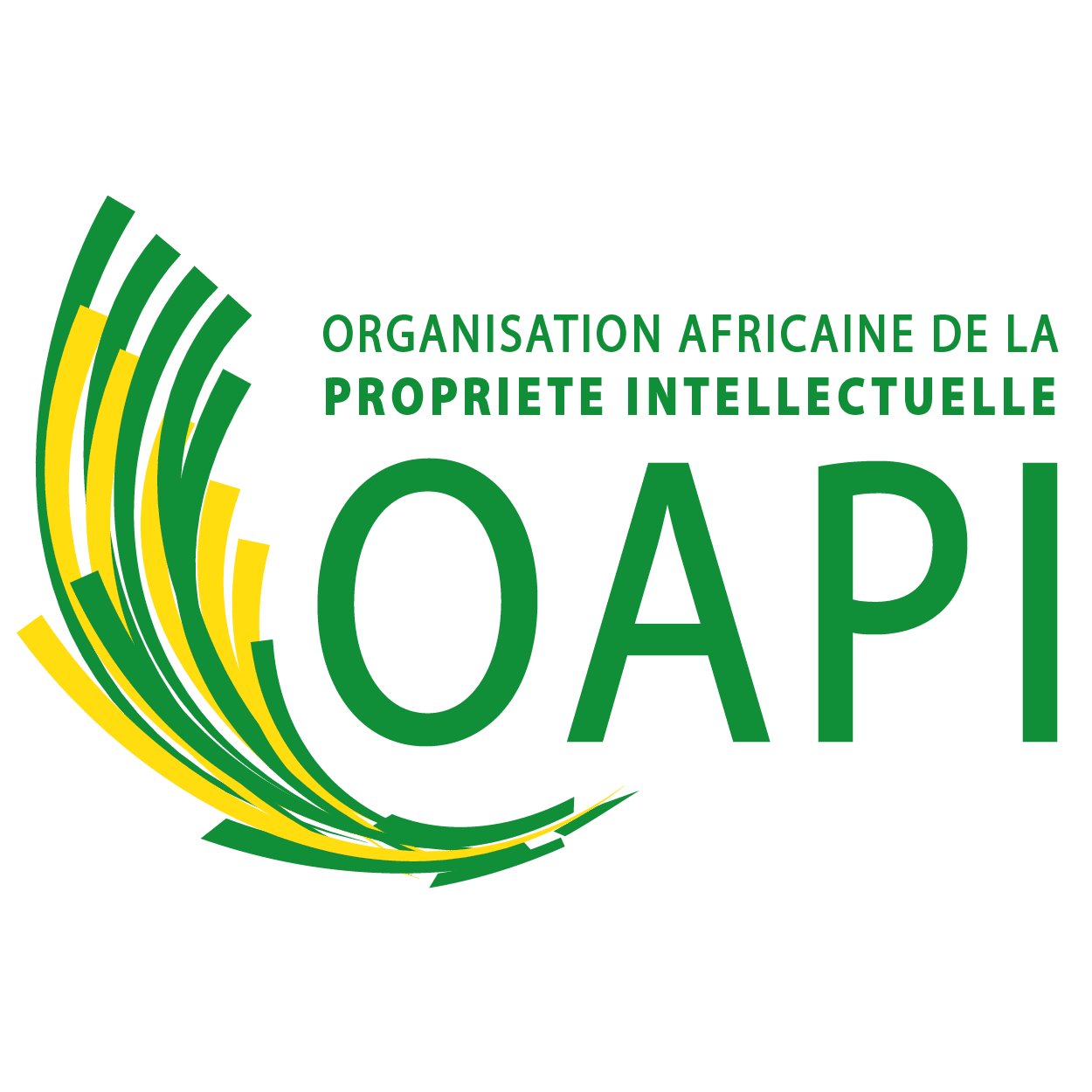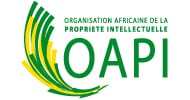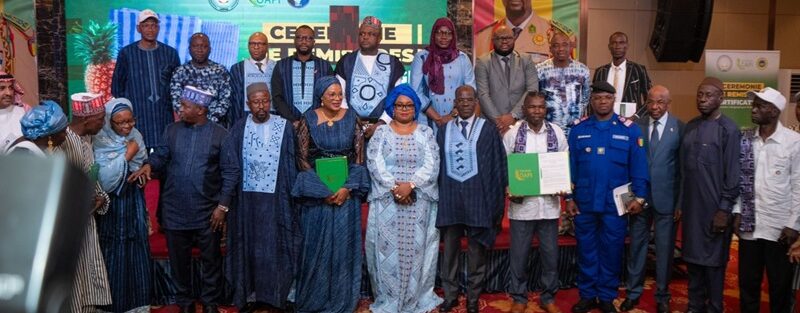On October 22, 2025, the Republic of Guinea took another step forward in promoting its local products by celebrating the official registration of two new Protected Geographical Indications (PGIs): the “ Baronne Pineapple of Friguiagbé ” and the “ Guinean Lépi ”. The solemn ceremony, held in Conakry under the chairmanship of Prime Minister Amadou Oury Bah, represented for the occasion by his Minister and Chief of Staff, Mr. Mohamed Lamine Sy Savané , brought together high-ranking officials, including Dr. Diaka Sidibé , Minister of Industry and SMEs and OAPI Administrator for Guinea, Moussa Moïse Sylla, Minister of Culture and Handicrafts , and Denis BOHOUSSOU , Director General of OAPI.
Mr. Bohoussou symbolically handed over the registration certificates, along with the PGI logo now affixed to these iconic Guinean regional products, to Ms. Sidibé, who in turn officially presented them to the representatives of the respective groups. It is worth noting that prior to this ceremony, the Director General was received at the Prime Minister's office by the Prime Minister, to whom he presented the certificates and explained the process that led to the certification of these national treasures.
A lever for economic sovereignty and rural transformation
With these recognition instruments now in place, which guarantee credibility and authenticity for consumers, this new labeling brings to three the number of local Guinean products recognized as Protected Geographical Indications (PGI) by the African Intellectual Property Organization (OAPI). They join Café Ziama Macenta , a pioneer in sub-Saharan Africa since 2013.
In his speech, Mr. BOHOUSSOU welcomed “a positive dynamic that enshrines the legal recognition of traditional know-how and the promotion of African agricultural and artisanal excellence.”
For her part, Ms. Sidibé reaffirmed the Guinean government's ambition to make "Made in Guinea" a benchmark brand in Africa and internationally, while welcoming the technical and institutional support of OAPI .
For his part, Mr. Mohamed Lamine emphasized that these labels embody “a living link between a community, an environment and a culture”. They play a strategic role in value creation, rural stability and economic sovereignty .
Mr. Moussa, for his part, celebrated this recognition by stating that “Léppi is not just a fabric, it is a heritage, a legacy and a language. Its registration as a PGI is a cultural and economic victory, the result of the hard work of our artisans.”
The Baronne pineapple, the second agricultural Protected Geographical Indication (PGI) from Guinea, is cultivated in the Friguiagbé region , renowned for its fertile soils and favorable climate. It boasts a melting texture, characterized by intense golden-yellow flesh that is slightly fibrous, very juicy, very sweet, and fragrant. Unlike other pineapple varieties grown in Guinea, the Friguiagbé Baronne is distinguished by its numerous spines on the leaves, making harvesting quite difficult. Its registration process with the African Intellectual Property Organization (OAPI) began in 2021, as part of the second phase of the PAMPIG2 project (Project to Support the Implementation and Promotion of Geographical Indications in Africa), implemented by OAPI with the support of the French Development Agency ( AFD
The country's first Protected Geographical Indication (PGI) for artisanal textiles, léppi is an emblematic fabric originating from the Middle Guinea region, commonly known as "indigo loincloth." Léppi is quintessentially representative of the Fulani people and is frequently worn during major ceremonies . An ancestral skill passed down through generations in dyeing families, léppi is unique in that it is very lightweight and made in a single color: indigo, the dye of which is obtained from an ecological composition of tree bark and plant fibers.
Towards effective governance of PGIs
The day also featured a capacity-building workshop for producer groups in the pineapple and textile sectors. The objective was to equip them for optimal management and sustainability of the Protected Geographical Indications (PGIs) in production processes, market distribution channels, and the promotion and defense of their rights in case of infringement, as pioneers in the registration process.
Recognition that holds promise for the future
A horticultural resource and a treasure trove of craftsmanship, these new Protected Geographical Indications (PGIs) demonstrate the potential of local producers as key players in preserving national heritage, creating wealth, and transforming rural communities. Guinea thus confirms its regional leadership in the development of PGIs and its commitment to an economy based on identity, originality, quality, traceability, and sustainable competitiveness.








